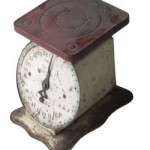 The term metabolism is the chemical process that happens inside your body which is used to maintain life. Metabolism is the chemical reactions used to develop energy from the foods you eat, and the way that your body uses it to allow you to continue to do the things you want to do.
The term metabolism is the chemical process that happens inside your body which is used to maintain life. Metabolism is the chemical reactions used to develop energy from the foods you eat, and the way that your body uses it to allow you to continue to do the things you want to do.
Even at rest your body is taking actions – breathing, heart rate, digesting food, brain function – which all require calories to continue. Those calories (the unit of measure of energy) come from your body’s ability to metabolize the foods you eat and turn it in to energy. The number of calories you burn to do these basic functions is called your basal metabolic rate and some call it metabolism rate.
Your rate of metabolism is dependent upon the size of your body, how much muscle to fat you have, your sex, your age, physical activity and food processing. Muscle burns more than fat, even at rest. Men burn more calories than woman and younger people burn more than older people. About 10 percent of the calories you burn goes to food digestion and storage and physical activity is the most variable of the factors involved.
There are several things you can do to boost your metabolic rate or the rate at which your body naturally burns calories.
- Increase your muscle mass. Muscle burns more calories, even at rest, than fat. So a muscular person will burn more calories watching television and sleeping than someone with less muscle and more fat.
- Maximize the amount of calories you burn during the day by using high intensity intervals during your cardio workout. If you integrate 30 seconds of high intensity workout with 90 seconds of recovery over 20 minutes, with a 3 minute warm up and 3 minute cool down in those 20 minutes, you’ll burn an extra 100 to 200 calories during the day AFTER you’re done working out.
- Get your rest! In a study released in the American Journal of Physiology, researchers found that the duration of your sleep can contribute to a variability in the amount of energy you burn in a 24 hour day. (1) Lack of sleep will also increase your cortisol output which in turn increases the amount of visceral (belly) fat that is produced.
- Foods that you eat are essential to creating an internal environment that burns more calories. Iron is an element essential for carrying oxygen to the cells in your body which is needed to burn fat. When you are low on iron you’ll be more fatigued and your body burns calories at a slower rate.
- Water both curbs your appetite and increases your fat burning engine. Water is an appetite control agent, requires no prescription, has no side effects and can cost very little money. (2) Adequate amounts of water in the body will also increase the rate at which your body consumes calories.
- Vitamin D is essential for your immune system and to your muscle tissue. When your body has enough of this essential vitamin the muscles are more likely to burn calories at a higher rate.
- Green Tea Extract has been one of the most talked about metabolism boosters because there are some studies that find it can help to burn fat. Some researchers believe that it is the catechins in the green tea that is responsible for the fat burning effect.
References:
(1) American Journal of Physiology: Relationship Between Sleep Stages and Metabolic Rate in Humans
http://www.ncbi.nlm.nih.gov/pubmed/7977724
(2) American Chemical Society: Drink Water to Curb Weight Gain
http://www.sciencedaily.com/releases/2010/08/100823142929.htm
Resources:
MayoClinic: Metabolism and Weight Loss
Reuters: Drink More Water, Lose More Weight
http://www.reuters.com/article/2013/07/03/us-drink-more-water-idUSBRE96217Y20130703
Kid’s Health: Metabolism
http://kidshealth.org/teen/your_body/body_basics/metabolism.html
Medical News Today: What is Metabolism
http://www.medicalnewstoday.com/articles/8871.php
Men’s Health: 5 Easy Ways to Rev Up your Metabolism
http://www.menshealth.com/mhlists/rev-your-metabolism/
University of Maryland Medical Center: Green Tea
http://umm.edu/health/medical/altmed/herb/green-tea


Leave a Reply